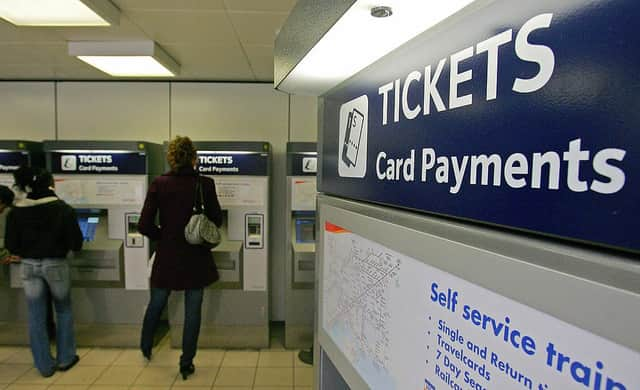Train fares could increase by 4.8% next year in biggest rise in a decade


Train passengers could see fares rise by up to 4.8 per cent next year, marking the biggest increase in costs in a decade.
Rising costs are usually linked to the July’s Retail Prices Index (RPI) measure of inflation, which the Office for National Statistics confirmed as 3.8 per cent for July 2021 on Wednesday (18 August).
Advertisement
Hide AdAdvertisement
Hide Ad‘No decision has been made’
While the government is yet to announce how much rail fares will rise next year, they are usually increased every January based on the RPI measure of inflation for the previous July.
However, due to the coronavirus pandemic, the increase to fares this year was delayed until 1 March.
Ticket prices in England and Wales rose by an average of 2.6 per cent in March, representing RPI for July 2020 plus one percentage point.
If a similar approach is used again next year, this would mean rail passengers would see fares rise by an average of 4.8 per cent, which would mark the largest increase since 2012.
Advertisement
Hide AdAdvertisement
Hide AdIncreases in the cost of rail fares are controlled by the UK, Scottish and Welsh governments.
In Scotland, passengers have fared better this year, with the rise in costs being slightly smaller than England and Wales.
The Scottish government imposed increases of 1.6 per cent for peak travel and just 0.6 per cent for travelling off-peak.
A spokesman for the UK Government’s Department for Transport said: “No decision has been made on national rail fares.
Advertisement
Hide AdAdvertisement
Hide Ad